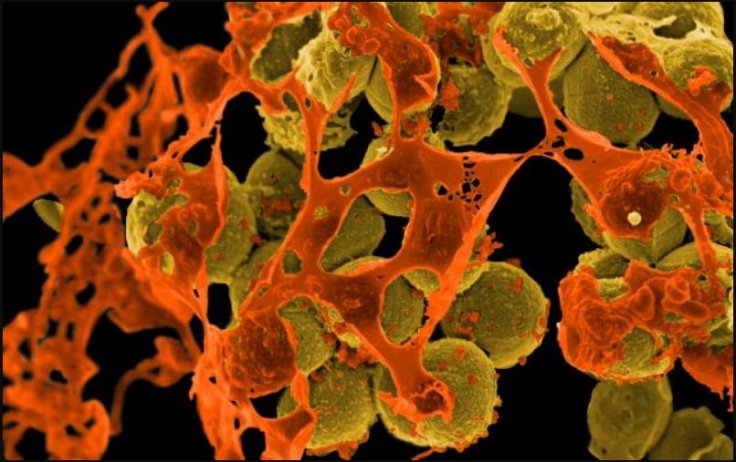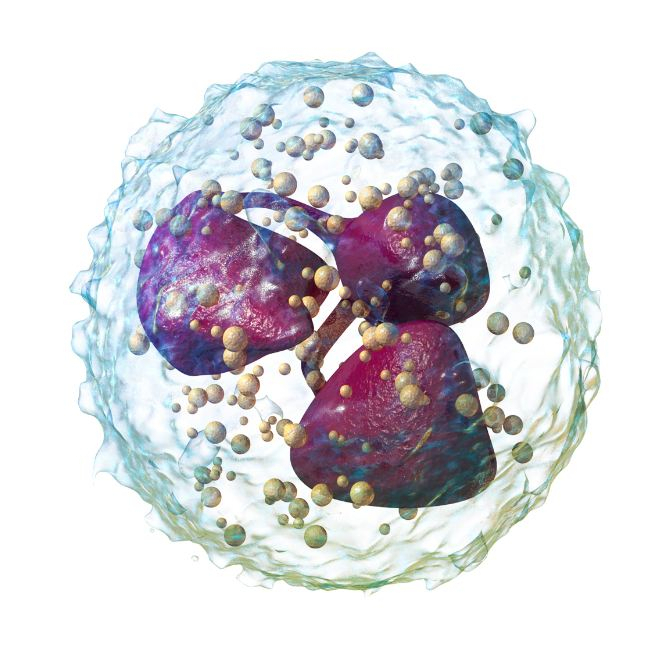As medicinal drugs have evolved, so have the pathogens that they target. One such example is the deadly Staphylococcus aureus bacteria whose antibiotic-resistant strain, Methicillin-resistant Staphylococcus aureus (MRSA), is notoriously difficult to treat. However, researchers from the NYU Grossman School of Medicine have developed a new experimental vaccine that is effective against the MRSA and other Staphylococcal bacteria.
According to the study, scientists have designed a novel vaccination strategy that does not target the MRSA directly, but rather seeks out the toxic molecules it produces. "Our study provides a roadmap for developing an effective vaccine against all Staphylococcal infections, especially MRS. This strategy is based on maximum disarmament of the bacterium's ability to kill all types of immune system cells," said Victor J Torres, senior author of the study, in a statement.

Toxic Compounds Released By MRSA
Staphylococcus aureus causes several infections in different parts of the body. The antibiotic Methicillin is used to treat the ailments caused by it. However, a strain known as Methicillin-resistant Staphylococcus aureus (MRSA), causes severe hard-to-treat infections that cannot be managed using Methicillin.
So far, several attempts at developing a vaccine against Staphylococcal bacteria have failed as they produce a toxin known as leukocidins that kill leukocytes or immune system cells. As vaccines are designed to trigger the production of immune cells, the functions of leukocidins negate the vaccine's action.
As a result, these bacteria release leukocidins to counter not only a quick attack by immune cells, but also restrict the body of the infected host from acquiring any long-term immunity through antibodies (which are produced by leukocytes).

Targeting Toxic Molecules
Previous research by the same team discovered that mice survived infections caused by Staphylococcal bacteria whose leukocidins had been genetically altered to inhibit their toxicity. The nontoxic leukocidins served as the basis of the new vaccine.
Torres explained that by attacking the toxins, the vaccine prevents the bacteria from killing vital leukocytes known as neutrophils that the immune system relies on for destroying the invading pathogen. The vaccine also protects other leukocytes such as B cells and T cells that are required for the creation of long-term immunity against infections.
Strong Immune Response
The study demonstrated that mice who were infected repeatedly with toxin-producing Staphylococcal bacteria showed an immune response to infections by producing antibodies against the bacteria as well as its toxins. They also found that among mice infected with bacteria designed not to produce leukocidins, their bodies produced double the amount of antibodies targeting the bacteria, and exhibited a stronger immune response in the absence of the toxins.

According to the authors, this enhanced immune response led them to choose leukocidins as their targets to provide an "upper hand" to those fighting infections caused by the bacterium. However, Torres stated that the commercial availability of an antileukocidin vaccine will take years. His team intends to carry out clinical trials to ascertain whether humans vaccinated against leukocidins display a toxin-specific immune response similar to those in mice.
Torres added that his team wished to glean if similar antitoxin effects can be observed against the other hundreds of toxic molecules produced during infections caused by Staphylococcal bacteria. Nevertheless, he concluded that a "foolproof" vaccine against bacteria such as MRSA will comprise of more than mere targeting of its toxins.









